In this EIT Digital double degree track, you will study the design, development, and optimisation of embedded systems that are integral to modern technology, focusing on hardware and software integration, safety, security, and business innovation.
Smart, embedded systems are found everywhere in our daily lives, from mobile phones to household appliances, from robotic manufacturing systems to unmanned vehicles, cars, airplanes, satellites, healthcare devices, and even elevators. Many of these include safety and security issues to be taken care of. The growing intelligence of embedded systems requires more and more efficient onboard computing units, including sophisticated chips (like hardware accelerators or signal processors) as components, or even integrated heterogeneous on-chip systems.
With the rapid development of Artificial Intelligence and the Internet of Things, our dependence on smart technology will only continue to increase, meaning companies are actively recruiting forward-thinking, creative engineers, innovators, system architects, and specialists equipped with the ability to innovate the embedded systems of tomorrow. Thanks to the Embedded Systems Design master’s programme, you will acquire the skills and confidence to compete in this booming field.
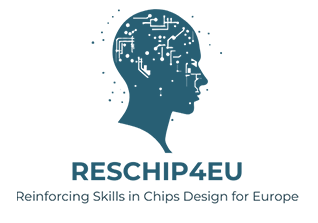
The programme is supported by additional funding through the European Union‘s Digital Europe Programme Project RESCHIP4EU (101158828) which grants scholarships and financial support to top-ranked students.
First-year program at POLIMI (*new 2025/26*)
Starting from September 2025, Politecnico di Milano offers the first year for the EIT Digital Major in Embedded Systems Design (Intelligent Chips and Systems), a new double degree in the framework of the Laurea Magistrale in Computer Science and Engineering.
The first year provides 60 ECTS, integrating a set of technical courses (36 ECTS) with the Innovation & Entrepreneurship Minor (20 ECTS) and a thematic I&E Summer School (4 ECTS).
The following table summarizes the study plan for the first year. Please notice that, on the basis of the curriculum of previous studies, the Admission Committee at Politecnico can specify some little directions on the individual study plans.
| ||||||||||||||||||||||||||||||||||||||||||||||||||||||||||||||||||||||||||||||
(*) The Summer School takes place between the first and second year, being computed among the 60 ECTS of the first year. It brings students together for two weeks to work in groups on a business modelling and planning project in the context of a societally relevant thematic area. Summer Schools take place at different locations throughout Europe, supporting a multidisciplinary and international dimension, with a clear EIT Digital flavour to education. You can choose the one you like to attend from the catalogue of Summer Schools organised by EIT Digital and published at the beginning of the first semester.
Detailed descriptions for each Polimi course on our Manifesto degli Studi
Second year
During the second year, students have the option to specialise in one of the technical areas that are offered by their respective Exit Universities, providing 30 ECTS of exams + 30 ECTS for the Thesis. Please, refer to their local programs for the second year study plans, you can find them on the EIT Digital Master School webpage for Embedded Systems Design (Intelligent Chips and Systems)

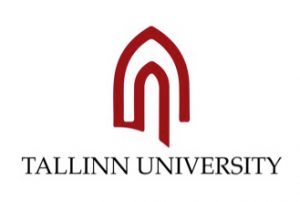
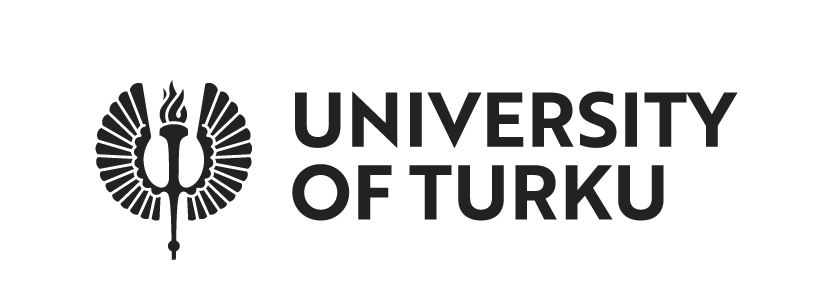

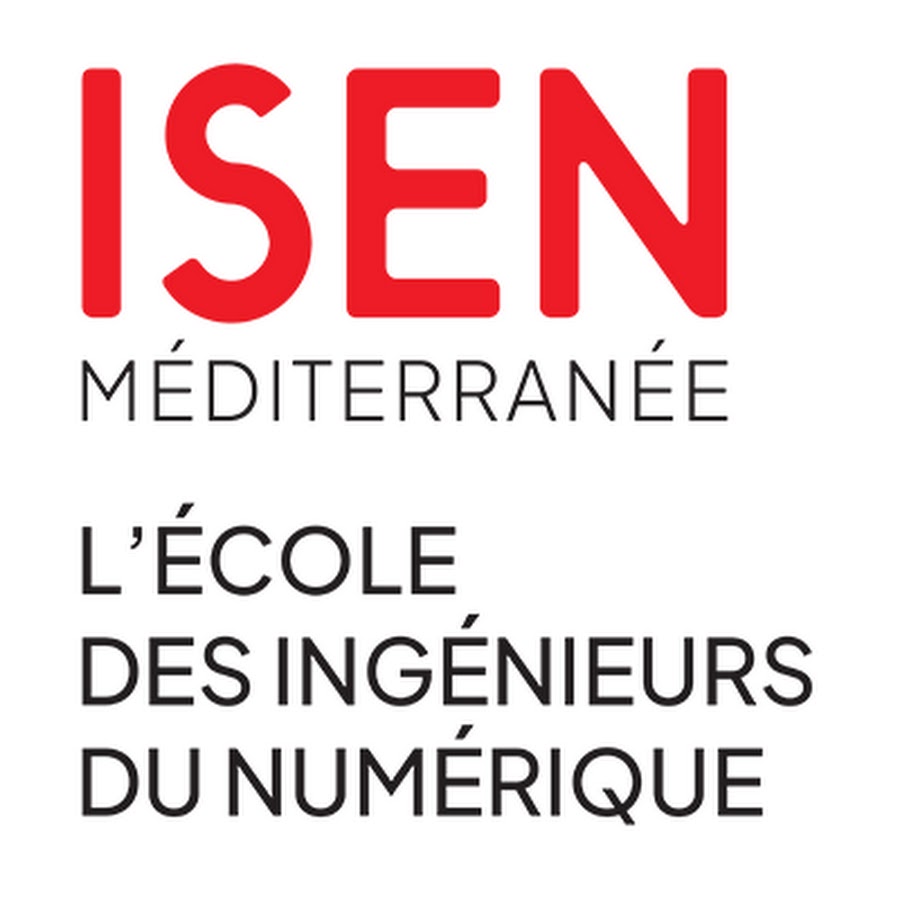
Double Degree
At the end of the programme, a Master degree will be awarded by both universities involved in the mobility pathway (namely, by Polimi and by your exit university). Moreover you will receive an “EIT label” certificate, which attests to the Innovation and Entrepreneurship skills acquired during the programme.
EIT label: a seal of quality for entrepreneurial education
The EIT Label, granted by the European Institute of Innovation and Technology (EIT), recognises education programmes that develop practical skills in innovation and entrepreneurship, preparing students to address real-world challenges. Courses that bear our EIT Label are all guaranteed to make sure you’re getting hands-on experience across Europe that directly prepares you for your chosen sector and connects you to the like-minded people ready to help get your ideas off the ground.
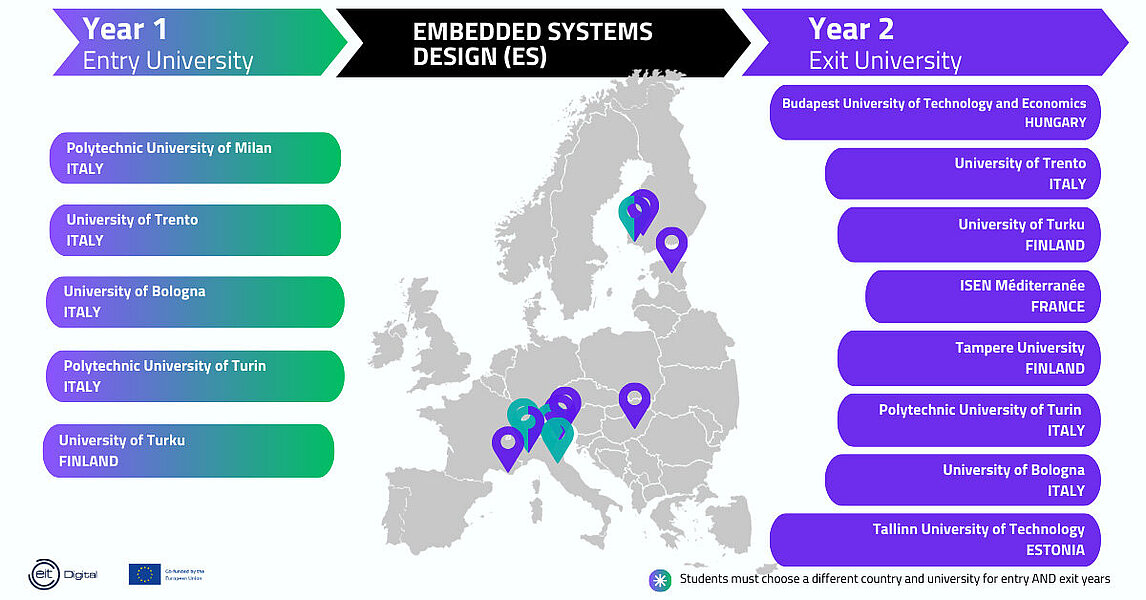
The major in Embedded Systems Design (Intelligent Chips and Systems) at Polimi is implemented as a specific track of the Laurea Magistrale in Computer Science and Engineering (MSc). Therefore, this entry university is best suited for applicants with a bachelor degree in Computer Engineering. This means a strong base of ICT, computer science, programming, software engineering and databases, alongside engineering subjects (e.g. electronics, automatic controls or mechanics), physics, probability and statistics, linear algebra and mathematical analysis courses in your transcript of records.
Contacts
 | Christian Pilato RESCHIP4EU Coordinator at Polimi |
 | Federico Schiepatti EIT Digital Programme Manager at Polimi For info: federico.schiepatti@polimi.it |

